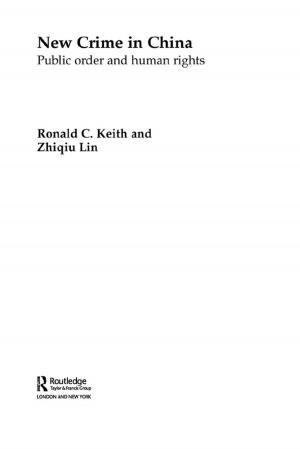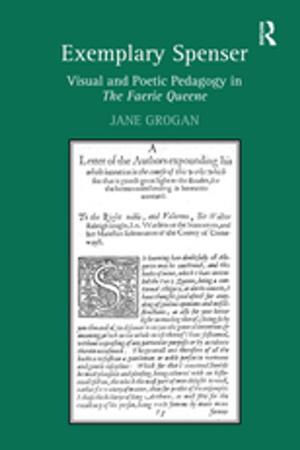Women Novelists and the Ethics of Desire, 1684–1814
In the Voice of Our Biblical Mothers
Fiction & Literature, Literary Theory & Criticism| Author: | Elizabeth Kraft | ISBN: | 9781351871907 |
| Publisher: | Taylor and Francis | Publication: | December 5, 2016 |
| Imprint: | Routledge | Language: | English |
| Author: | Elizabeth Kraft |
| ISBN: | 9781351871907 |
| Publisher: | Taylor and Francis |
| Publication: | December 5, 2016 |
| Imprint: | Routledge |
| Language: | English |
In Women Novelists and the Ethics of Desire, 1684-1814, Elizabeth Kraft radically alters our conventional views of early women novelists by taking seriously their representations of female desire. To this end, she reads the fiction of Aphra Behn, Delarivier Manley, Eliza Haywood, Sarah Fielding, Charlotte Smith, Frances Burney, and Elizabeth Inchbald in light of ethical paradigms drawn from biblical texts about women and desire. Like their paradigmatic foremothers, these early women novelists create female characters who demonstrate subjectivity and responsibility for the other even as they grapple with the exigencies imposed on them by circumstance and convention. Kraft's study, informed by ethical theorists such as Emmanuel Levinas and Luce Irigaray, is remarkable in its juxtaposition of narratives from ancient and early modern times. These pairings enable Kraft to demonstrate not only the centrality of female desire in eighteenth-century culture and literature but its ethical importance as well.
In Women Novelists and the Ethics of Desire, 1684-1814, Elizabeth Kraft radically alters our conventional views of early women novelists by taking seriously their representations of female desire. To this end, she reads the fiction of Aphra Behn, Delarivier Manley, Eliza Haywood, Sarah Fielding, Charlotte Smith, Frances Burney, and Elizabeth Inchbald in light of ethical paradigms drawn from biblical texts about women and desire. Like their paradigmatic foremothers, these early women novelists create female characters who demonstrate subjectivity and responsibility for the other even as they grapple with the exigencies imposed on them by circumstance and convention. Kraft's study, informed by ethical theorists such as Emmanuel Levinas and Luce Irigaray, is remarkable in its juxtaposition of narratives from ancient and early modern times. These pairings enable Kraft to demonstrate not only the centrality of female desire in eighteenth-century culture and literature but its ethical importance as well.















